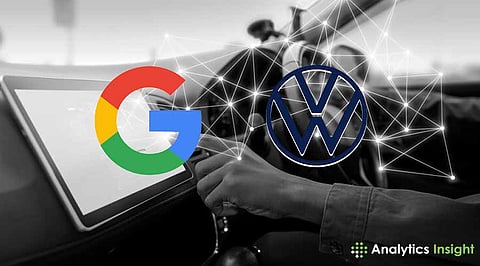

Google is teaming up with Volkswagen to bring an AI assistant product that is expected to shake the game for car drivers.
The AI assistant, available in a smartphone application provides hand-free support to drivers by offering guidance on a range of vehicle tasks. It is powered by Google's Gemini large language models and cloud computing infrastructure.
The new AI assistant allows Volkswagen drivers to ask questions such as "How do I change a flat tire?" or point their phone's camera at the dashboard for real-time information.
It is trained on owner's manuals from Volkswagen and various YouTube videos about vehicle maintenance for the right and context-specific answers.
It uses the Gemini models of Google, which are high-tech programs that can understand and generate human language with a predictive sense. More importantly, it can process multimodal inputs such as text, images, and video, therefore proving a very solid tool to deliver relevant information when drivers need it most.
Thomas Kurian, CEO, of Google Cloud, talked about the complexity of building the AI assistant. He noted, "The problem looks superficially simple, but it's technically very complex. Most people think what we built is just a speech-to-text system that looks up a manual."
The assistant is now available to 120,000 owners of Volkswagen's Atlas and Atlas Cross Sport models. By early 2025, the feature will roll out to other Volkswagen cars from model year 2020 and beyond.
This alliance thus comes as a result of Google's relentless efforts to expand its presence in the market of cloud computing. Google trails behind Amazon and Microsoft in terms of market share and aims to find its niche by offering customized enterprise AI applications such as the Volkswagen assistant. AI solutions have already garnered billions in Google's revenues this year, though the company hasn't released concrete figures yet.
Companies such as Volkswagen are just scanning how to use generative AI practically to enhance consumer experiences.
Volkswagen hasn't revealed concrete metrics for user numbers on the AI assistant, but the company is optimistic about its ability to improve the ownership experience in the eyes of high-tech drivers.
This partnership between Google and Volkswagen is probably the first of many because it will set the standards for what now becomes the new normal in AI integration in the automobile industry.
Featuring a combination of language, visuals, and interactive tool combinations, this is certain to treat drivers to a lot m
ore intuitive, hands-free experience on the roads. This partnership sure marks one big step forward in the development of smart vehicle technology.
